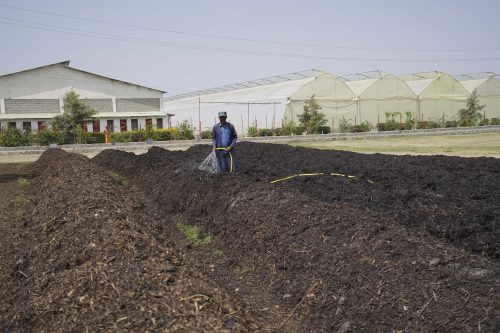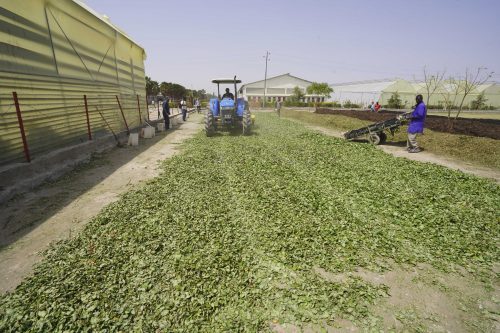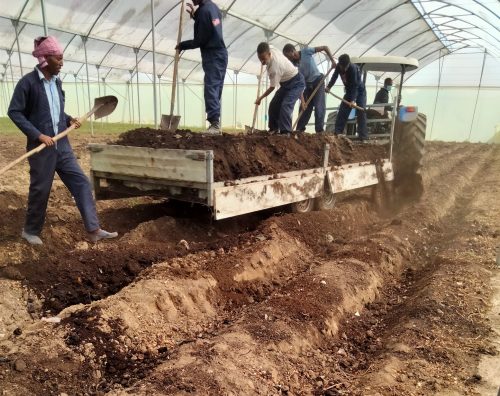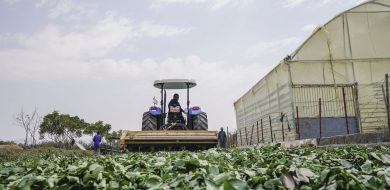At Sher Ethiopia we turn the green waste from the gradings, crop maintenance, pruning and uprooting into compost. Composting is the process of letting nature transform organic materials into a material with environmentally beneficial applications. The process uses various microorganisms such as bacteria, actinomyces and fungi to breakdown the organic compounds into simpler substances.

In natural surroundings, leaves and branches that fall to the ground form a rich, moist layer of mulch that protects the roots of plants and provides a home for nature’s most fundamental recyclers: worms, insects, and a host of microorganisms too small to see with the naked eye. Composting is a viable process of treating solid waste for beneficial use and destroying pathogens, diseases and undesirable weed seed. By properly managing air, moisture and nutrients, the composting process can transform large quantities of organic material into compost in a relatively short time. In our case this is six to eight weeks.

During composting, the microorganisms consume oxygen while feeding on organic matter. Active composting generates a considerable amount of heat, and large quantities of carbon dioxide and water vapor are released into the air. The carbon dioxide and water losses can amount to half the weight of the initial organic materials. The proces reduces both the volume and mass of the raw materials while transforming them into a beneficial humuslike material. The benefits of composting are:
- it improves the soil structure and fertility;
- it releases plant nutrients slowly;
- it encourages strong plant root systems;
- it is a good source of essential trace elements;
- it is environmentally friendly.
All compost is used to nourish the rose plants. It is applied manually right before planting.

